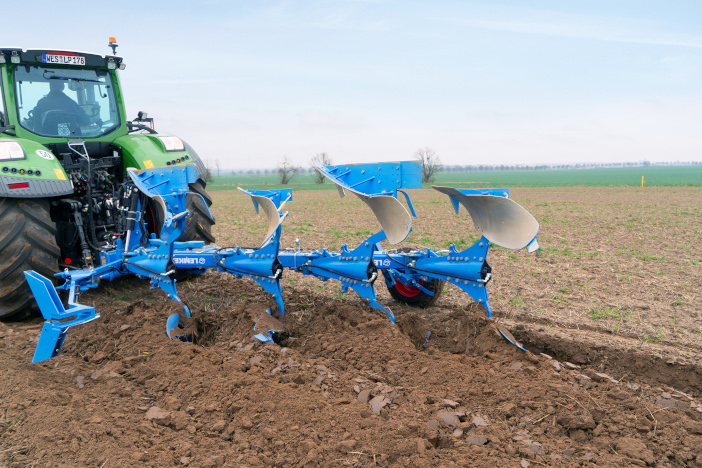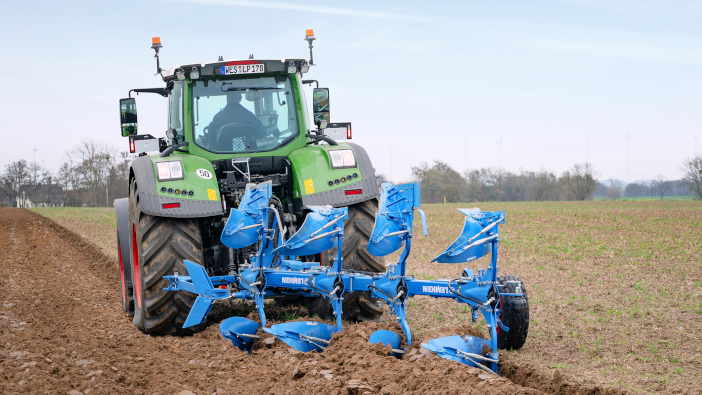Lemken has developed the concept of a Carbon Farming Plough in collaboration with the Leibniz Centre for Agricultural Landscape Research (ZALF).
The ZALF researches work on yield and climate effects of partial deep tillage and is funded by the German Federal Ministry of Food and Agriculture. Lemken will use this research to create an implement for carbon enrichment in arable soil.
The plough is intended to be used to break up compaction and improve soil health as a result. It features bodies that work at alternating depths to create wells below the tillage level in every other furrow.
Analysis of historical trials conducted by the ZALF has shown that more than half of the humus introduced in this manner is retained to secure the long term storage of CO2 in the soil.
The lower soil layers with little humus which are ploughed up in the process are mixed with the topsoil and form new humus-rich topsoil within a few years, overall the humus content of soils tilled in this manner will reportedly increase. It also creates a new business model in the form of carbon farming.

Yields can reportedly increase by up to 5% even in the first year. This effect was established as early as the 1960s and 1980s and has been confirmed by recent field trials. The method can be repeated diagonally to the main direction of work after five to ten years.
In addition to this, the new technology opens up new income streams in the form of trade in CO2 certificates.
When paired with an iQblue connect module, the Carbon Farming Plough will be capable of collecting site-specific work data and precisely documenting the depth and position of the wells created. The plough will be available to purchase from mid-2024.
For more information go to www.lemken.com


